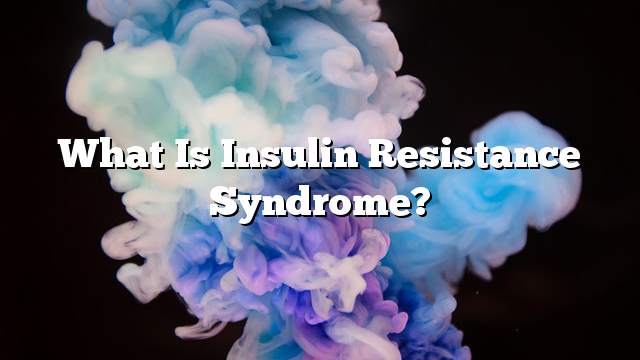Insulin resistance syndrome
Insulin resistance syndrome is a physical condition in which the hormone that secrete insulin changes to a hormone that is less effective in reducing blood sugar levels. It is symbolized by the symbol “IR”. It can result in many health damage if the person does not take good care of it. In this article on the causes of insulin resistance syndrome, its symptoms, how to treat.
Causes of insulin resistance syndrome
- Genetic causes: Insulin resistance cases may be common in one family, are more common in marriages and are often inherited in people with type 1 diabetes.
- Diet: Eating certain foods increases the risk of insulin resistance, such as high intake of fructose, excessive use of artificial sweeteners, and increased intake of low-calorie soft drinks.
- Disease Linkage: Insulin resistance syndrome is associated with Type 1 diabetes, as well as its association with hepatitis C cases. Insulin resistance is more than four times higher than that of healthy people. Insulin resistance is strongly associated with women with polycystic disease Ovaries.
- Weight gain: Excessive weighting causes a breakdown of the body’s normal insulin secretion, causing massive fatigue to the liver while trying to regulate blood glucose.
Symptoms of insulin resistance syndrome
- Feeling tired, persistent fatigue.
- An increase in blood sugar, for those who do not have diabetes.
- Feeling confused in the head, weak in concentration.
- Excessive bloating, gas, and post-eating feeling.
- Feeling sleepy always, especially after eating carbohydrates, sugars.
- A marked increase in weight, and accumulation of fat in certain places such as sharks, arms, and buttocks.
- An increase in the level of triglycerides, and an increase in cholesterol.
- A sudden rise in blood pressure for people with diabetes.
- Change mood, and bad.
Treatment of Insulin Resistance Syndrome
It is recommended to go to the immediate treatment of insulin resistance syndrome to avoid diabetes. One of the most successful and effective treatments is weight loss, exercise, especially walking, dieting with low calorie intake, avoiding eating artificial sweeteners, And the appropriate fatty acids to treat the resistance of insulin omega-3, in addition to the use of certain tablets to burn fat, and regulate levels of triglycerides, and there are some drugs that help regulate blood insulin, which is Take it after being described by your doctor.
